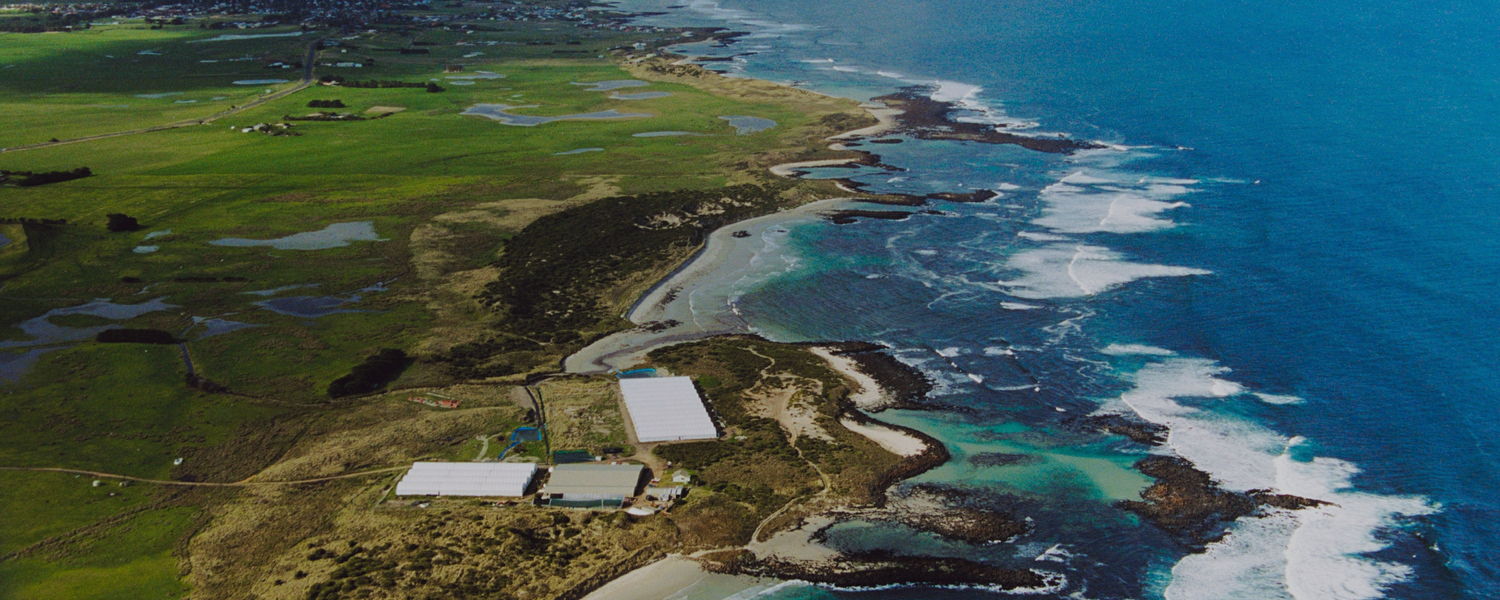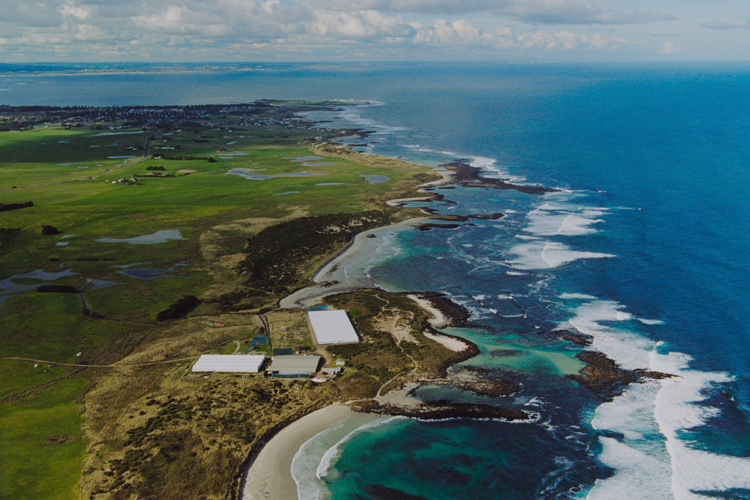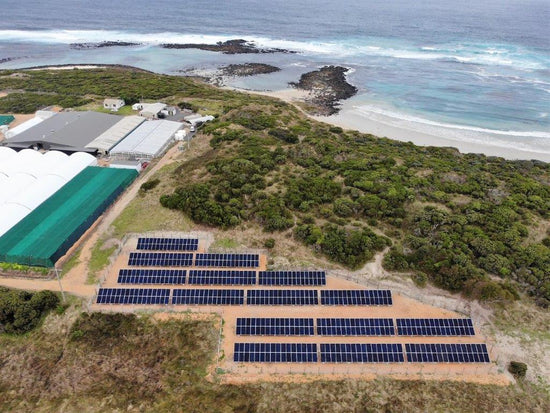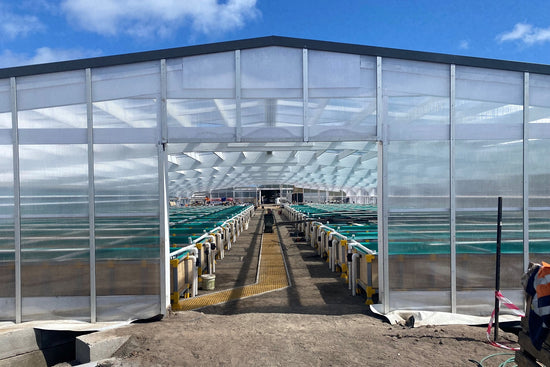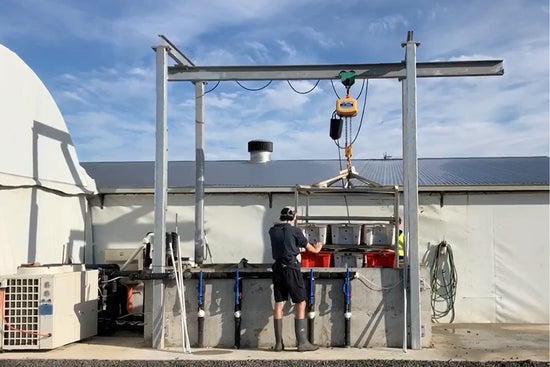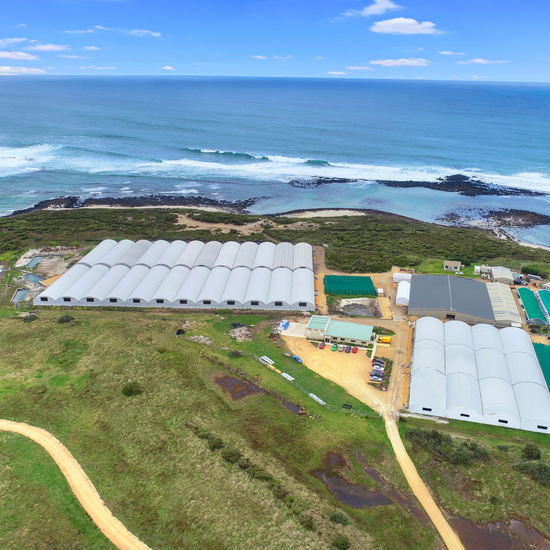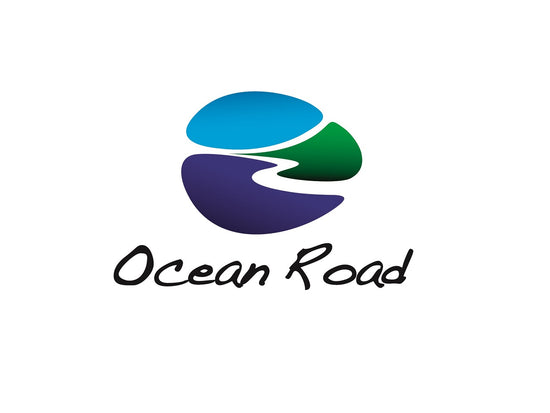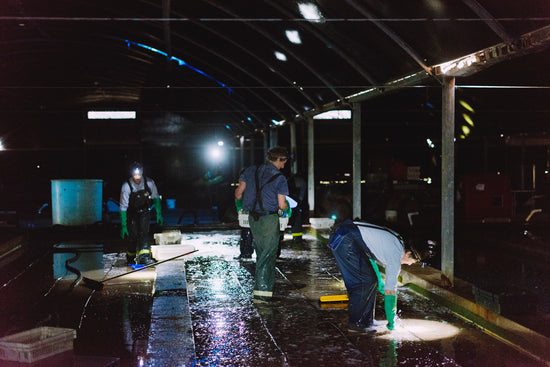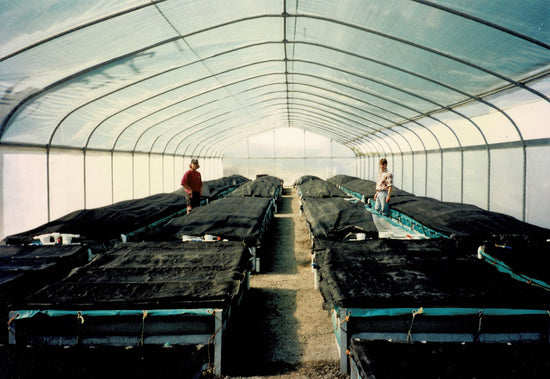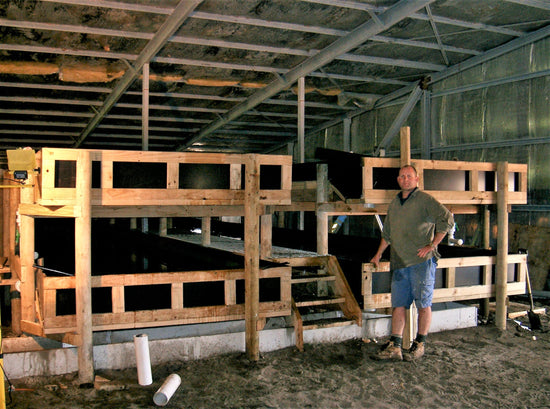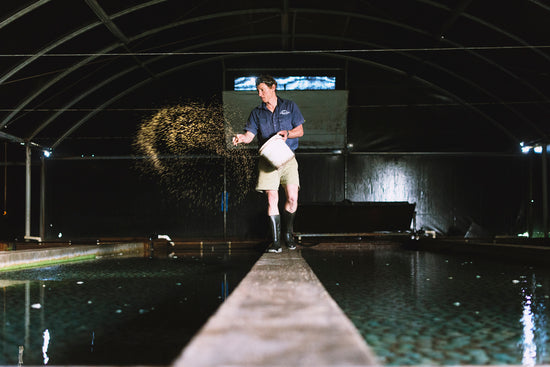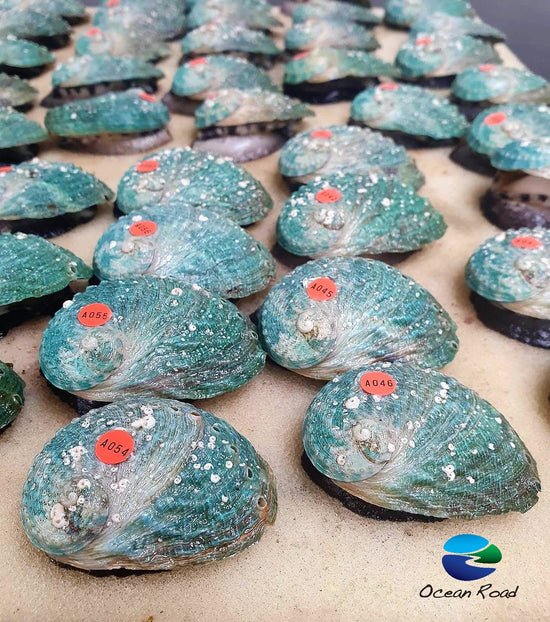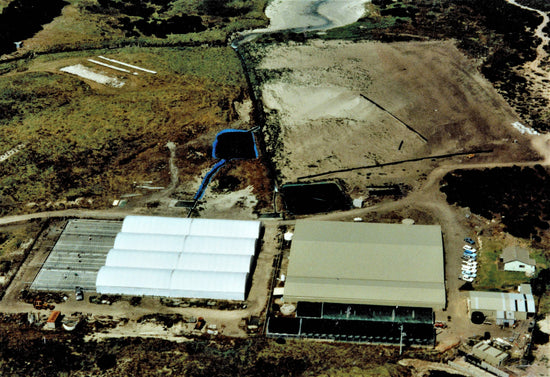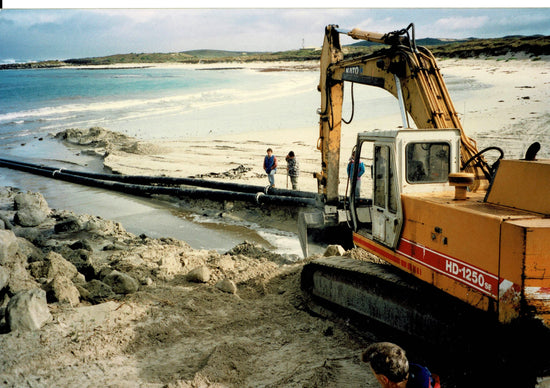The pioneer of Australian land-based abalone farms.
Since the day we commenced building one of the first abalone farms in Australia on a windswept sand dune near Port Fairy in April 1996, the journey has been quite a ride. Being the pioneer in any industry means you make a lot of mistakes. However, relishing a challenge and being innovative is in our DNA. We strive every day to produce world-class quality abalone for our customers to enjoy.
Our Value
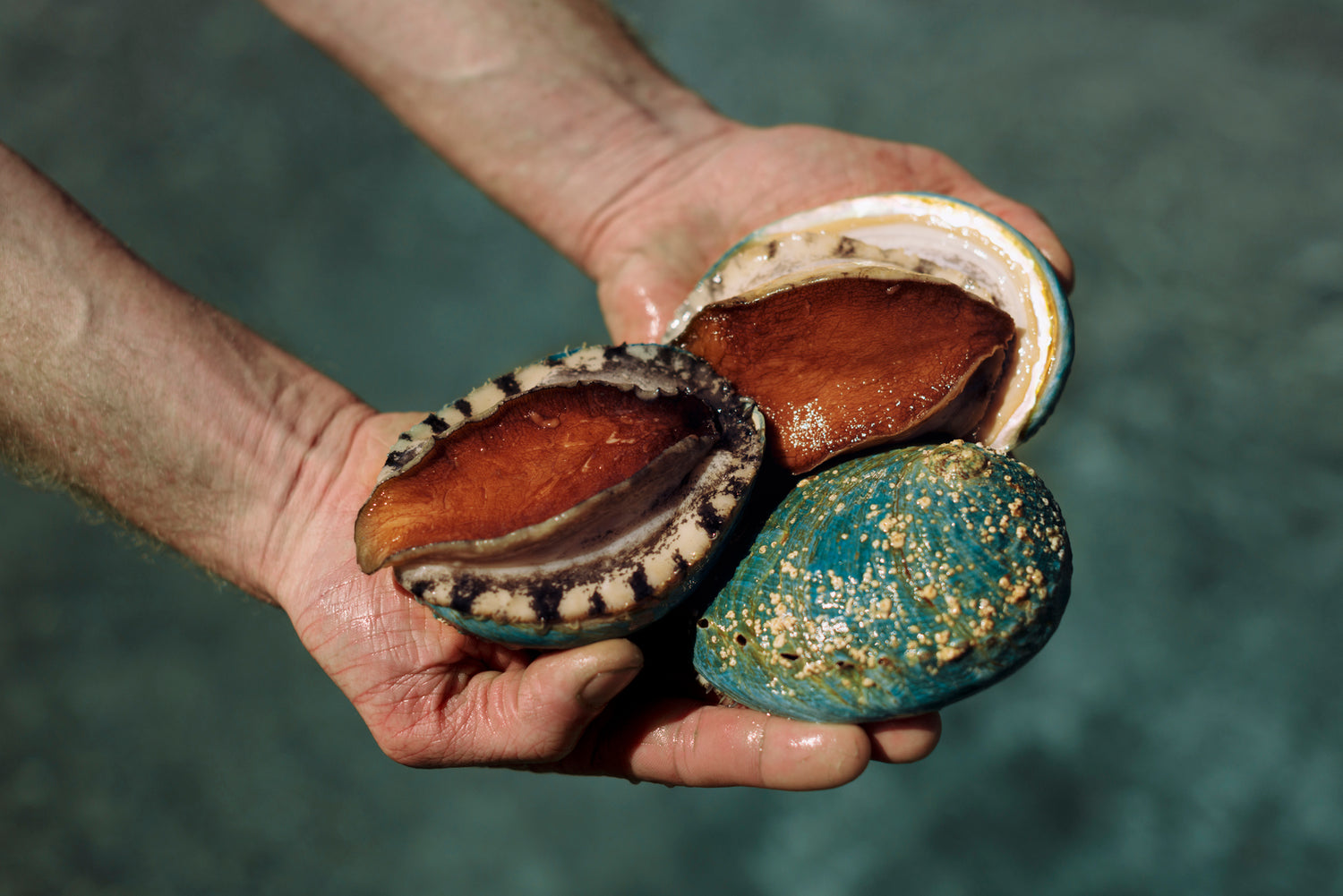
Pure Australian abalone
Our abalone grows in the coolest, cleanest and most consistent temperature water of any abalone farm in Australia. This results in great abalone all year, every year. No chemicals, no additives!

Working towards sustainability
Our goal is to achieve full product use of the abalone, meat shell and gut.
Innovation in our live abalone distribution means we no longer use wasteful polystyrene boxes for the majority of our local distribution and we are continuing to seek alternative methodologies in other markets.
Through investment in a 250kw of solar power system and involvement in a smart energy precinct for Port Fairy, we aspire to be carbon neutral or positive by 2030.
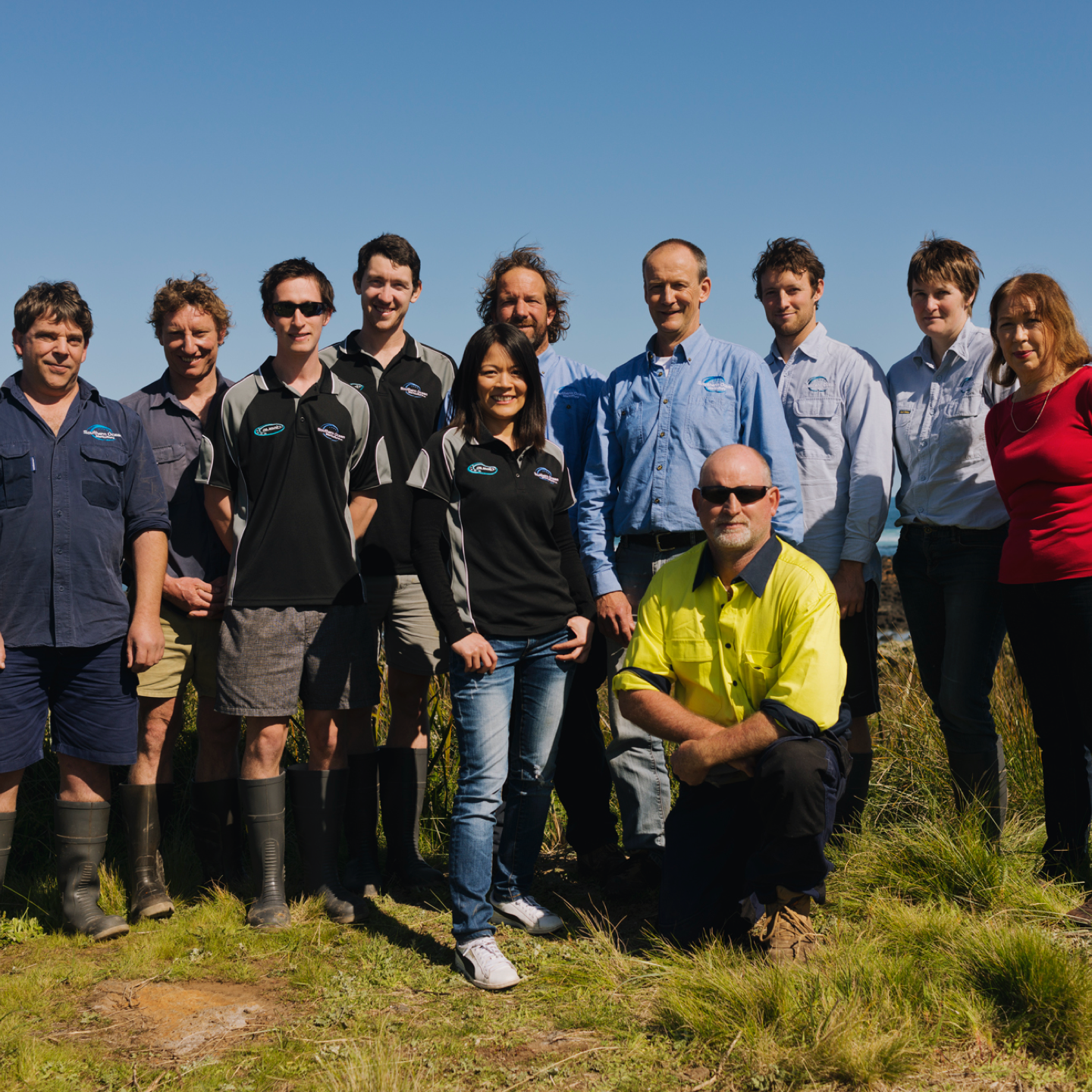
Our people, our community
We are a small farm but have an enviable problem in that we have an amazingly loyal and well-educated staff. Just six of our team have accumulated over 124 years of experience on this farm. We work closely with Deakin University to give work experience to as many students and graduates as possible, with all of our husbandry staff being students or graduates.
Our Journey
Abalone farming was in its infancy when we started farming. Growing abalone up to one year of age was known overseas. The years after that, to get them to market size, it was all trial and error. We spent years improving the survival rate of 3-week-old baby abalone (the size of a grain of sand) and succeeded in improving this from 1% to 50% and shared this knowledge with the rest of the industry. Ocean Road abalone made various tank designs for the 1-3 year old abalone to improve quality and survival rates, with many prototypes discarded. The equipment and techniques for growing, grading, and feeding the abalone were designed and developed in-house to get to the system we have today. The farm lost all of its stock from a virus in 2006. We rebuilt again with the same investors, board and many staff going the whole journey with us. We love what we do and are persistent in getting the best end result.
Growth of Production Over The Years (MT)

Our Future
The future of abalone farming for Ocean Road abalone is not only about producing great tasting abalone, but it is about doing this in a sustainable way as we are uniquely tied to our marine environment. It is also about helping our local community by training the next generation of aquaculture professionals and contributing to local businesses. We have great plans to introduce abalone to new customers in products not sold before and develop on-farm tourism, tasting and sales so our customers can see how we farm. Sure, we will be striving to produce great tasting abalone in the most efficient way possible, but we want to do that and share our journey with as many people as possible.


